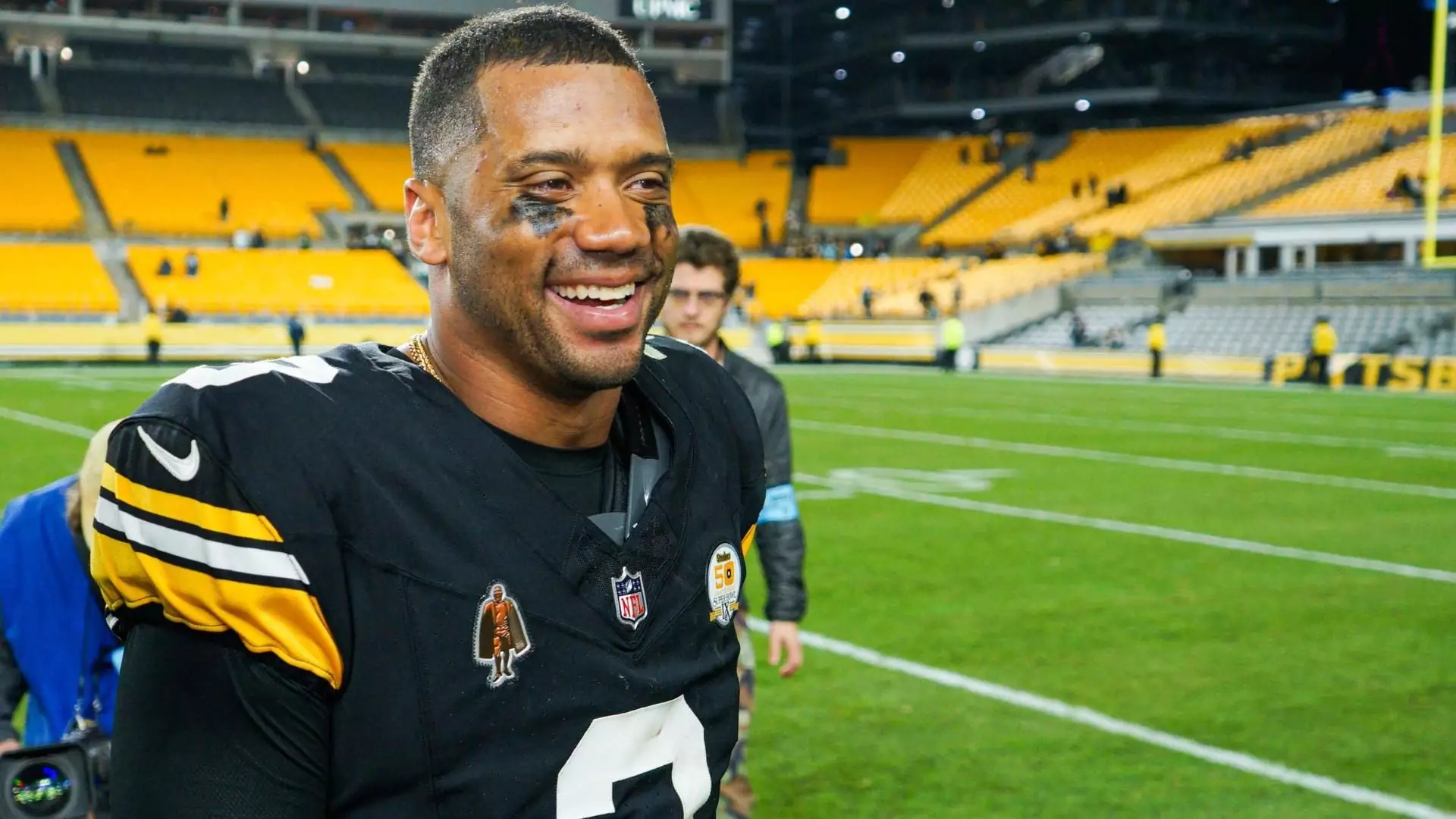The whirlwind of the NFL offseason has once again offered a series of surprises, none more controversial than Russell Wilson’s decision to join the New York Giants on a one-year deal amounting to $21 million. For a player historically associated with success, including a Super Bowl victory at MetLife Stadium with the Seattle Seahawks, one would expect his arrival in New York to be cause for celebration. However, delving deeper into the ramifications of this move raises eyebrows rather than excitement.
Only weeks ago, the Giants were embroiled in discussions about their future quarterback, making Wilson’s choice a head-scratcher. This is not merely about his skill on the field but rather a broader reflection of the organization’s direction and the shaky foundation upon which they are trying to build their future. The Giants have been trying to return to their glory days, but considering their inconsistent recent seasons, one can hardly argue that they are the right stage for a player seeking to re-establish himself as a top-tier quarterback.
The Detriment of Short-Term Solutions
Bringing Wilson into the fold does not only cloud the horizon for the Giants but also muddles their plan. With the impending NFL draft and the number three overall pick, one would expect that the franchise might prioritize long-term solutions instead of another short-term rental. At 36, Wilson does not fit into a rebuilding plan; he is bringing in a winning mentality, but at what cost? The Giants need to identify the quarterback of the future, not just a passer who might contribute for a season or two.
Moreover, signing Jameis Winston just days prior to Wilson’s addition muddles the quarterback room further. While the excitement over talent acquisition might seem valid, the reality is that the Giants are transitioning into an embrace of mediocrity where former high-profile players are thrust into starting roles while youth and potential remain sidelined.
Sifting Through the Statistics
Examining Wilson’s statistics from his time with the Steelers provides a sobering perspective. Despite boasting a 6-5 record, it came with notable red flags, such as a struggling touchdown to interception ratio and mounting sacks that signal an offensive line in disarray. The Giants cannot afford to overlook this; they’re entering a new chapter, yet Wilson comes with baggage from a previous season that saw him finish on a five-game losing streak.
One does not need to be a statistician to sense that these numbers express a story far beyond just individual performance. Over two seasons in Denver, Wilson has largely underperformed relative to expectations, leading to a team record that falls well short of playoff contention. If the objective is to transition from mediocrity to excellence, investing in players who may only provide short-term benefits is counterproductive. The Giants seem poised to repeat past mistakes by prioritizing experience over potential.
The Fool’s Gold of Experience
Experience can be a double-edged sword; for every veteran presence that elevates a team, there are those who stifle growth and cohesion. While Wilson undoubtedly has championship credentials, the Giants seem to be banking on a fading star rather than cultivating raw, unpolished talent. The decision to tie themselves to a player with more year-one-attempts than years of sustained success does not symbolize a franchise moving forward ambitiously.
Moreover, considering the nature of the NFL today, where younger quarterbacks are driving their teams toward unprecedented heights, it seems shortsighted to perpetuate the idea that veterans alone can thwart a downward trajectory. Instead of surrounding the organization with emerging talent, there is a tendency to lean on familiar names, a decision wrapped in nostalgia but lacking foresight.
A Distraction from Long-Term Goals
Wilson’s signing may also inadvertently distract the Giants from addressing critical needs elsewhere on the team. The franchise often emphasizes establishing a cohesive team structure, yet repeatedly signing veterans, rather than nurturing prospects, dilutes the focus on crafting a balanced roster fit for sustained competition.
Investments in aging quarterbacks and short-term fixes might momentarily quiet fans clamoring for excitement, but these decisions will likely resonate negatively in years to come. The Giants risk falling into a cycle of mediocrity, opting for names over prospects, while allowing brighter futures to slip through their fingers.
The choice to welcome Wilson back into MetLife serves as both a nostalgic nod to his past success and a potential hindrance to the franchise’s ambition for tomorrow. The Giants might need to scrutinize their strategies instead of merely piling on talent in a game of cherry-picking veterans. The urgency to escape the shadows of past failures should compel the organization to pave new pathways, refusing to sunset on the ill-fated notion that past triumphs guarantee present success.

